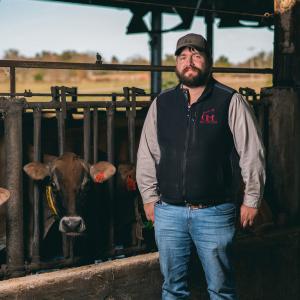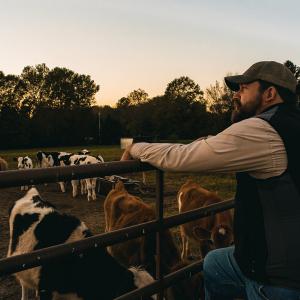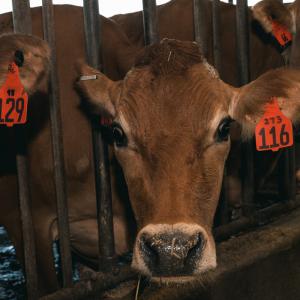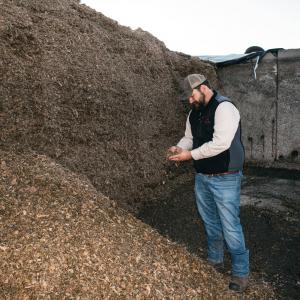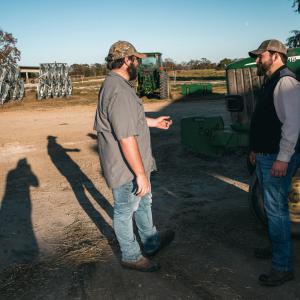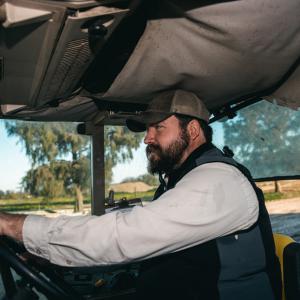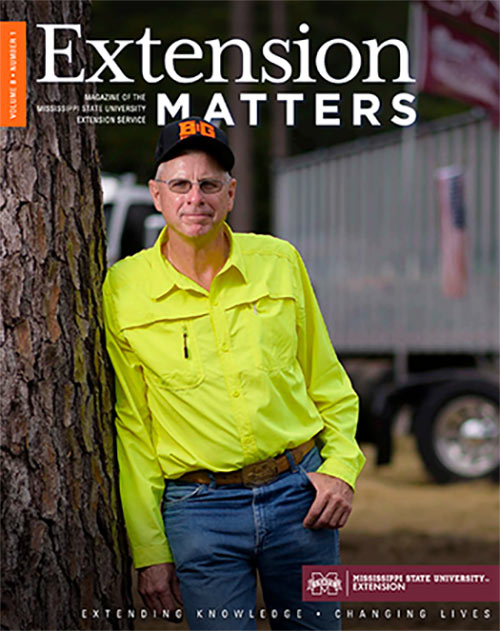Keeping the PROMISE
Extension destigmatizes mental health issues, one conversation at a time
Story by Erica Hensley • Photos by Kevin Hudson
If you or someone you know is struggling, access the Crisis Text Line 24/7: Text TALK to 741-741.
When Colby Hardin first started working at the Arkansas Department of Corrections dairy farm, he prepared as if going to war.
Hardin grew up on a cattle farm in Oakland, in Yalobusha County, and worked with Mississippi State University’s dairy herd throughout college. Though he had farming experience, he found working in the high-security prison setting to be extremely stressful.
“My situational awareness was peaked out all day every day, and that bled over into my outside-of-work life,” he shares.
The stress of managing a 300-unit herd eventually resulted in a problem with heavy drinking. At first, it helped him unwind after long farm days, but soon he needed more and more to take the edge off. Though he didn’t realize it at the time, Hardin was self-medicating to deal with the stress of working at the prison farm.
After his prison work became too much, in 2016, Hardin moved back to his family farm in quiet crisis. Soon, a farm accident killed his golden retriever, Ginger, and the next few years were a blur of unmanaged mental health conditions. Friends and family knew something was wrong, but, for years, nobody intervened.
After two mental breakdowns, a colleague finally helped him check in at Starkville’s Community Counseling Services. He entered a 1-week inpatient program to jump-start recovery.
“He was the only one to ask me, ‘What’s wrong? Are you okay?’” Hardin says of his colleague. “It was just me and him in the truck, and I broke down and told him, ‘Buddy, I’m trying my absolute best, but I need help.’”
Through therapy, Hardin confronted living with depression, substance-use disorder, anxiety, and post-traumatic stress disorder.
Today, the 29-year-old is more than 2 years sober and back at MSU, as an assistant dairy herder at Bearden Dairy Research Center. Without the support of MSU colleagues, he wouldn’t be here today, he shares. Hardin didn’t get help earlier because he didn’t know where to go, and nobody—including his family doctor—recognized his symptoms as part of the mental health crisis he was experiencing.
As trusted members of Mississippi’s farming community, MSU Extension agents are connecting farmers like Hardin to mental health resources before a crisis hits. Through the PROMISE Initiative, short for PReventing Opioid Misuse In the SouthEast, all Extension agents are trained in Mental Health First Aid.
“Across the state, Extension agents work with farmers every day, and we are well-positioned to build on those relationships to normalize conversations about mental health and to connect those who are struggling to resources that can help,” says Dr. David Buys, Extension state health specialist.
“In Colby’s story, there was a friend and colleague who reached out to connect him to care. We want our agents to feel equipped to do the same thing,” Buys says. “It is difficult to take that first step and ask them if they are OK, but Colby’s story shows just how important and powerful that one question can be.”
Hardin used to worry that disclosing his mental health challenges would have negative repercussions, so he delayed getting help for too long, while his problems worsened. He now knows the opposite was true—getting help was the only path forward.
“The stigma of the substance abuse and the psychiatric care used to worry me with the people in our farming industry,” he says. “I believe we all fight battles in our own ways, and, in the rural community I grew up in, it could be perceived as weak to ask for help.”
But in sharing his story, Hardin hopes to encourage others to confront their mental health problems and take steps toward recovery.

